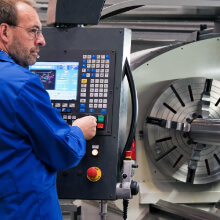Improving Quality With Measurement System Analysis (MSA)
When measurements are used to monitor process parameters or verify product characteristics, we need to know if the data can be trusted and used as a decision making tool.
The quality of measured data depends on the characteristics of the measurement system which must have adequate –
- Accuracy
- Resolution
- Repeatability
- Reproducibility
Measurement systems that do not meet these criteria may produce unreliable or misleading data, causing poor decisions to be made by operators, quality engineers or senior managers.
The use of ‘unreliable data’ – generated by the use, or misuse, of an inappropriate measurement system can have far reaching consequences – as people who don’t understand the data react to misinformation, by –
- Making unnecessary and inappropriate process adjustments
- Accepting non-conforming products,
- Releasing defective and potentially dangerous products to consumers, or
- Rejecting conforming products, increasing levels of scrap and rework within the process,
To select a measurement system that is ‘fit for purpose’, or establish confidence in the data we are using we must first understand the system requirements, and the potential sources of measurement error.
Measurement System Analysis prevents the use of unreliable data in process and quality control – by assessing the performance of the measurement system and calculating the process capability – quantifying the confidence that can be placed in the data.
This lays the foundations for an effective process control plan, allowing you to select measurement tools and techniques that ‘fit for purpose’ and identify people’s training needs.
MSA Training and Support
If you don’t know if you should ‘trust your measured data’ or need help understanding and applying MSA in your organization – why not contact Phil Stunell and discover how we can help you.





